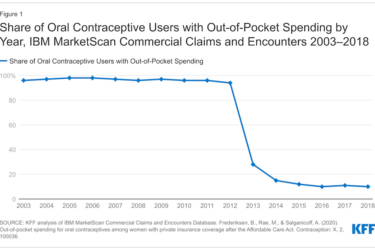
When reporting on junk health insurance plans, one of the prerequisites is finding consumers willing to talk about how they fell victim to an egregious health coverage scam.
Such stories are most compelling when you feature an unsuspecting consumer willing to explain how he or she got swindled into buying what looked like a worthwhile health insurance plan that would cover the costs of routine or emergency care or a major illness.
While finding sources for these types of stories can be challenging, Jenny Deam, a veteran health care journalist for ProPublica, explains what has worked best for her in a new tip sheet. As with all good health care stories, finding these sources takes some digging, along with knowledge of how social media works and knowing where to look, she explains.
Deam also advises in the tip sheet for reporters to join online forums for moms because in most American households, mothers are responsible for making health insurance decisions. And mothers who get scammed by sales people for unscrupulous health insurance plans may be willing to explain what happened to them so that other moms and families won’t suffer the same fate.
On May 8, 2021, ProPublica published the article Deam wrote about junk health insurance plans. Her colleague Maya Miller, an engagement reporter, contributed additional reporting.
In the article, “He Bought Health Insurance for Emergencies. Then He Fell Into a $33,601 Trap,” Deam and Miller featured the story of Cory Dowd, a self-employed event planner, who was 31 at the time and considered himself to be healthy. He bought two short-term insurance plans that came with low monthly premiums. He expected that the plan would cover his costs for any emergency care.
“Monthly premiums for the two short-term plans he bought were surprisingly cheap at around $100 a month each, with reasonable co-pays for routine doctor visits and treatments,” Deam wrote. “Best of all, the first plan he bought promised to cover up to $1 million in claims, the second up to $750,000.”
But soon thereafter, Dowd needed an appendectomy and his short-term, limited duration plan paid only $1,682, leaving Dowd owing almost $34,000 to the Mather Hospital in Port Jefferson, N.Y.
It’s easy to see why ProPublica included Dowd in this story. He’s like most Americans who shop for health care coverage. He was looking for a low monthly premium and a policy that offered to cover his costs for emergency care. But, as Deam explained, Dowd, like most of us, didn’t read the fine print.
“Monthly premiums for the two short-term plans he bought were surprisingly cheap at around $100 a month each, with reasonable co-pays for routine doctor visits and treatments,” Deam wrote. “Best of all, the first plan he bought promised to cover up to $1 million in claims, the second up to $750,000.”
But soon thereafter, Dowd needed an appendectomy and his short-term, limited duration plan paid only $1,682, leaving Dowd owing almost $34,000 to the Mather Hospital in Port Jefferson, N.Y.
It’s easy to see why ProPublica included Dowd in this story: He’s like most Americans who shop for health care coverage. He was looking for a low monthly premium and a policy that offered to cover his costs for emergency care. But, as Deam explained, Dowd is like most of us, he didn’t read the fine print.
We should point out that Deam and Miller’s coverage produced a positive result for Dowd. Two days after publishing the article, ProPublica provided an update “On May 10, 2021: This story was updated to note that on Monday, a Mather spokesperson confirmed a check for $32,772 had been received and that the remaining balance would be waived by the hospital.”
In the new tip sheet Deam goes into more detail about how she finds sources. One point she didn’t make is that ProPublica included an editor’s note at the end of her junk insurance article, saying this: “Did you receive high medical bills for COVID-19 testing, treatment or lasting complications that your insurance did not cover? We want to hear from you. Fill out the questionnaire below or email jenny.deam@propublica.org to get in touch.”
Journalists covering health insurance scams or surprise medical bills since the No Surprises Act went into effect on Jan. 1, should add a similar note to health insurance articles.








